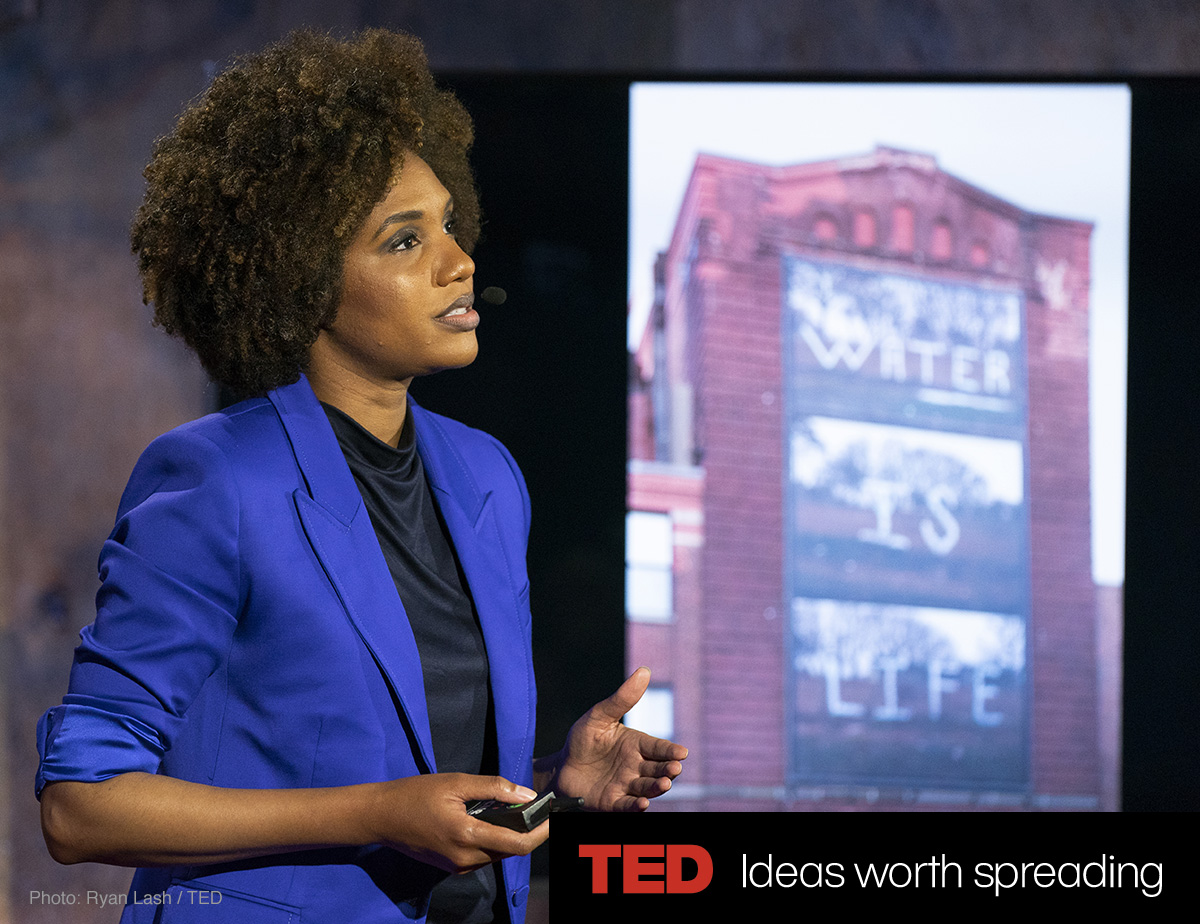LaToya Ruby Frazier Raises Her Lens Against Environmental Racism and Healthcare Inequity in America
Arts Help
by Zarah Owais
From Braddock, Pennsylvania, photographer LaToya Ruby Frazier uses her lens to capture the true essence of the Black experience in America. Her work tells the story of struggle but also that of resilience and strength as she exposes the cracks in the American water sanitation and health care system that marginalized populations fall through all too often.
Her photo essays Flint is Family, The Notion of Family, Campaign for Braddock Hospital and The Grey Area touch on the United Nations Sustainable Development Goals for Clean Water and Sanitation and Industries, Innovation, and Infrastructure. Undoubtedly, consistently depriving specific groups of access to healthcare, water, and fundamental human necessities can unquestionably be considered as a form of violence. By advocating for equitable and accessible healthcare for the Black community, Frazier’s work also aligns with the United Nations Sustainable Development goal of Peace, Justice and Strong Institutions.

In her 2019 Ted Talk Frazier describes the story behind Flint is Family while dissecting environmental racism and healthcare inequity. Recounting her experience visiting a public school in the area she says, “It rocked me to the core to see that in America, we can go from fountains that say ‘Whites’ or ‘Blacks only,’ to today seeing fountains that say, “Contaminated water. Do not drink.” And somehow, that’s acceptable?”
The history of environmentalism in the United States has been deeply embedded with racism since its beginnings. The all too predictable patterns of history come to light once again when looking at the Flint water crisis of 2014. It is a repeated failure of institutions to implement the necessary infrastructure to support marginalized groups thereby pushing these people deeper to the margins of society. The social, political, and historical cannot be separated from the empirical evidence.
The mishandling of the Flint water crisis despite outbreaks of disease, lead poisoning and numerous complaints by the community’s citizens demanding the city’s attention, should come as no surprise at all. Against this backdrop, and drawing parallels to her experience growing up in Braddock, Pennsylvania, Frazier’s work – particularly Flint is Family, Campaign for Braddock Hospital, and The Grey Area – confronts environmental racism and healthcare inequity in the United States.
[…]

Another photo essay, photographed between 2001 and 2014, The Notion of Family looks at the Black experience in the face of the American healthcare system. In this project, Frazier shares her personal experience growing up in Braddock, Pennsylvania and her experience as a victim of the unjust healthcare system. Battling cancer, as did her mother and grandmother, Frazier was exposed to a healthcare system deeply embedded with racism.
A Ted Talk by Dorothy Roberts describes the problem of race-based medicine where race in biomedicine is used as a proxy for underlying features that are present in certain social categories of people, but are not themselves racial. As in, socioeconomic factors such as healthcare inequity, water crisis, etc., that shape the health of marginalized groups are ignored and reframed as matters of race, something biologically constituted to these groups.
As a result, victims of an unjust system are conveniently blamed for their inadequate health while the institutions entrenched in discriminatory values perpetrating injustice reign freely. Frazier’s work urges institutions to take accountability for their histories of injustice towards marginalized populations and take initiative to, “promote and enforce non-discriminatory laws and policies for sustainable development.”
[…]
Courtesy of: Arts Help

